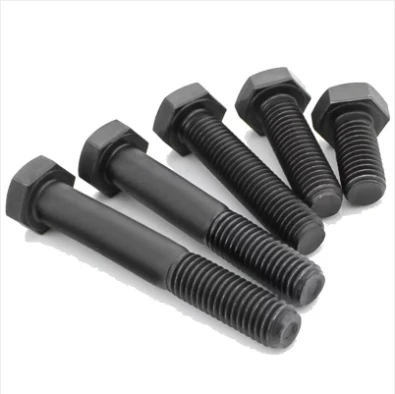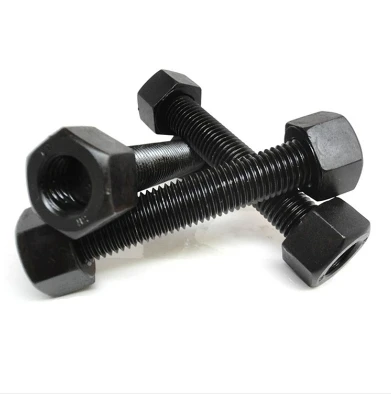bolts
ജനു . 09, 2025 12:22 Back to list
bolts
Bolts are essential components in countless industries, from construction to automotive to electronics. These seemingly simple fasteners secure structures, machinery, and equipment, ensuring stability and safety. Choosing the right type of bolt for a specific application requires understanding their types, materials, and features.
Installation techniques significantly impact the effectiveness of bolts. Proper torque application ensures that bolts are neither over-tightened, leading to breakage, nor under-tightened, resulting in loose connections. Employing tools like calibrated torque wrenches can help in maintaining precise tension levels, contributing to structural integrity and safety. In specialized fields, such as aerospace and nuclear industries, bolts undergo stringent testing and certification processes. This level of scrutiny ensures that every fastener meets industry-specific standards for quality and reliability. Engaging with reputable manufacturers who provide certification can enhance trustworthiness and reliability, reducing the risk of equipment failure. Innovations in bolt manufacturing, such as developments in material science and precision engineering, have led to more efficient and safer designs. For instance, smart bolts embedded with sensors can monitor stress levels and alert maintenance teams when a bolt is loosening, offering predictive maintenance solutions, especially in critical infrastructure systems. Choosing the right bolt not only depends on its specifications and materials but also on the manufacturer's reputation and compliance with industry standards. Collaborating with a supplier known for expertise and reliable customer support can streamline the procurement process, ensuring the best fit for any project. In conclusion, bolts may be small components, but their functional impact is substantial across various industries. The right selection, installation, and maintenance of bolts translate into safer, more efficient, and longer-lasting structures and equipment. Leveraging advancements in technology and material science promises even greater innovations in bolt applications, securing their place as indispensable elements in modern engineering.


Installation techniques significantly impact the effectiveness of bolts. Proper torque application ensures that bolts are neither over-tightened, leading to breakage, nor under-tightened, resulting in loose connections. Employing tools like calibrated torque wrenches can help in maintaining precise tension levels, contributing to structural integrity and safety. In specialized fields, such as aerospace and nuclear industries, bolts undergo stringent testing and certification processes. This level of scrutiny ensures that every fastener meets industry-specific standards for quality and reliability. Engaging with reputable manufacturers who provide certification can enhance trustworthiness and reliability, reducing the risk of equipment failure. Innovations in bolt manufacturing, such as developments in material science and precision engineering, have led to more efficient and safer designs. For instance, smart bolts embedded with sensors can monitor stress levels and alert maintenance teams when a bolt is loosening, offering predictive maintenance solutions, especially in critical infrastructure systems. Choosing the right bolt not only depends on its specifications and materials but also on the manufacturer's reputation and compliance with industry standards. Collaborating with a supplier known for expertise and reliable customer support can streamline the procurement process, ensuring the best fit for any project. In conclusion, bolts may be small components, but their functional impact is substantial across various industries. The right selection, installation, and maintenance of bolts translate into safer, more efficient, and longer-lasting structures and equipment. Leveraging advancements in technology and material science promises even greater innovations in bolt applications, securing their place as indispensable elements in modern engineering.
Next:
Latest news
-
Durable Bolts for Lawn Mower Handle - Top Supplier & Manufacturer
NewsAug.22,2025
-
High-Quality Bolts for Lawn Mower Handle Supplier & Manufacturer
NewsAug.21,2025
-
Reliable Axle Nuts Supplier | High-Quality Automotive Parts
NewsAug.19,2025
-
Premium Wire Bolts Suppliers | Durable & Reliable Fasteners
NewsAug.18,2025
-
Leading Metric Wood Screw Companies & Manufacturers
NewsAug.17,2025
-
Top Wire Bolts Suppliers - Quality & Durable Fasteners
NewsAug.15,2025
